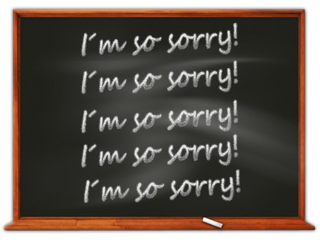
and Old, Familiar Ones….
Last week, in “Recognizing Mistakes”, I introduced some ways in which a close relationship can become derailed. Misunderstandings, poor or missing communication, failures to clearly express wants and needs and to consider ways to meet them can all offer occasions to show love. Taking these opportunities a bit further, we can Accept Responsibility for a challenge within the relationship.
What needs accepting?
- Individual responsibility — I did it! People vary in how they experience their inevitable errors, especially those mistakes that can hurt someone they love. Often a teen, moving beyond an egocentric world-view to one encompassing multiple perspectives of “formal operational thought” (see Piaget’s theory of intellectual development and Kohlberg’s moral adaptation of Piaget’s progression), can hurt parents severely. Teens need to discover their own capacity and power to cause pain. Because no-one in their world is safer than the ones who love them the most, those trusted allies usually become the first exploratory targets. A teen must learn to see and then accept his or her power as well as to understand the relationship “rules” or agreements that he or she has transgressed.
- Individual responsibility — it was my fault. Somewhere between the three year old’s belief that he or she magically causes all that happens in the universe and the adult’s attempts to do no harm, people learn to accept responsibility for their behavior. They become attuned to the potential feelings of guilt that accompany free will. Depending on childhood experiences, guilt can be a particularly tricky emotion to deal with, often internalized as a physical distress or quickly externalized into anger, in an attempt to defend oneself and accuse another of transgression. What happens when you do something “bad”? Does that generalize and make you an “awful human being”? What are the consequences? Are you ostracized? Punished? Do you feel unloved or unlovable?
- Responsibility as part of a partnership — failures in delegating or completing tasks. Sometimes two people split up the requirements of a task or an endeavor. They are then dependent on each other so that the result can be effective. Perhaps something must be done in a timely fashion. Perhaps it must be done to a particular standard. Perhaps it requires learning or other extra efforts in order to be done well enough or even at all. Coordination is essential. When there is a failure, the people involved are responsible for faulty teamwork.
How can a person effectively accept responsibility?
- Own your actions, for better or worse. Back to last week, recognizing mistakes, whether of omission or commission. Acknowledge that they contributed to the current situation.
- Understand your motivation. Take a good look at what provoked your behavior. Were you preoccupied with something else — not paying attention? Feeling angry or overwhelmed? Was something else in your life demanding your energy? Perhaps sadness or grief or excitement about an upcoming possibility? Were you pretending there was no need for you to respond? Note: in effective loving relationships, passive-aggressive behavior is prohibited.
-
Acknowledge and explain the intended outcome of your behavior. Perhaps you had meant the date you put on the calendar to provide a fun respite from a long work week. You did not imagine it might place yet one more demand on your loved one’s already overloaded circuits. Perhaps you had expected to have a car pool when you signed your child up for Little League or after school computer classes. You did not anticipate constant juggling when rain-dates required rearranging your family calendar.
- Recognize the unintended consequences of your behavior. Admit that you over-scheduled what was already a busy time of year. Face the fact that your purchase of tickets to take her to a matinee on Mother’s Day made it difficult for her to organize an event with her adult children. That your commitment to visit your family conflicted with his plans to take an anticipated bike ride.
Why accepting responsibility shows love
- Self-disclosure promotes intimacy. Feeling able to confide in another person is a sign of trust. It contributes to closeness in a relationship.
- Illusions of perfection can be laid to rest. Fears that you can never live up to your loved one’s image of you can be set aside. Accepting responsibility for imperfection reflects a belief that you are loved with all your quirks and idiosyncrasies and not because some illusion of a perfect partner is projected onto you.
- Appreciation of your own motivation helps you and your loved one find solutions to real needs. Perhaps you flirted with the clerk at the airline counter because you wanted to feel powerful, in charge. Find solutions that do not provoke jealousy. Perhaps confronting the feelings may be enough to diffuse the emotion without allowing it to direct behavior.
Effective teamwork requires respect and trust, basic foundations for long-term love. Knowing how to create and sustain a successful partnership offers a good possibility of being able to work together effectively over time, which fuels the cycle of respect-trust-admiration that can fan the flames of affection.
When did you last find yourself wanting to deny responsibility for something you said or did? How did you behave? What was the impact on the relationship? If you could rewind time and redo your behavior, what might you change? How do you imagine the consequences might change? Do you have any ideas of what you might try next time you find yourself in a similar situation?
Copyright 2017 Roni Beth Tower

Leave A Comment